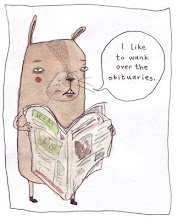For some reason artworks in acrylic or oil paint seem to hold more artistic gravitas than, say, watercolour in the eyes of most people. I can't really explain it - is it some kind of historical relic - that old masters used to sketch and make studies in graphite and watercolour before launching into their 'final piece' - the big, expensive canvas painted in extravagant oil paint? Is it the feeling that a watercolour is a sketch, or often executed at speed that gives it more of a 'throwaway' reputation? Do the solidity, opacity and physicality of thick paint endow it with more artistic clout? Whatever the case, I always argue that there is just as much merit in a well-executed watercolour painting, if not more. The medium of watercolour is unforgiving - you can't just paint over something you've cocked up or it goes muddy, your paper bobbles - it reveals every decision, every mistake and every success. The very best watercolour artists are my heroes.

Richard Parkes Bonington, the short-lived landscape painter, used both watercolour and oil. The luminosity and translucence of his glowing watercolours impress me far more than his oil paintings. There is something wonderful about how an artist must edit all the choices he will make before he commits his brush to the paper, so that every wash that he lays down is the right one, in the right place. The economy and spontaneity of watercolour are qualities that take a lot of skill to master. If you ever get the chance to see Bonington's watercolours, held in the archive at the Wallace Collection in London, I urge you to go. They are breathtaking.

On a more contemporary note, did you see the winner of the Sunday Times Watercolour Competition this year? The winner, Emma Haworth, also paints in oil - the image above is the winning watercolour painting, and the image below is an oil painting titled 'The Winter Park'. What I love about the watercolour image is how the medium used is so evident in the translucent tree trunks. I think that is delightful and would like to see it in the flesh.

Anyway, what's my point here? I am no great watercolourist, but I find it comes to me more naturally than other painting media. Maybe it suits my slapdash, can't be arsed, let's get this done quickly attitude? :-) No, I devalue my work this way. I think the fussiness, the forward planning required, and the brave breath that you have to take before laying down a big wash are things that appeal to me. But all that said, I would like to take up 'proper' painting again. In fact, I just ferreted out an array of acrylic paints from our house-moving boxes and have them lined up on the husband's desk facing me like a firing squad. Paint, or die. Now I've just got to go away and think of something to paint! Oh dear.
What do you think about painting? Which medium do you find the easiest to work with? Is it a good thing to push myself to try out new things and leave the comfort zone? Why am I so crippled with fear when faced with a blank painting board, whereas I can face blank paper without similar apprehension?









No comments:
Post a Comment